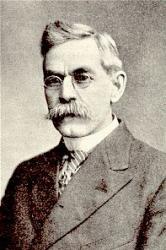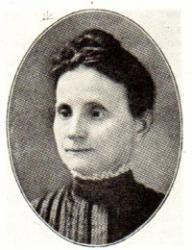
1796 - 1877 Hymnal Number: 169 Author of "O, for a Faith" in Sacred Praise Bathurst, William Hiley , M.A., son of the Rt. Hon. Charles Bragge (afterwards Bathurst) some time M.P. for Bristol, born at Clevedale, near Bristol, Aug. 28, 1796, and educated at Winchester, and Christ Church, Oxford, graduating B.A. in 1818. From 1820 to 1852 he held the Rectory of Barwick-in-Elmet, near Leeds. Resigning the Rectory in the latter year, through his inability to reconcile his doctrinal views with the Book of Common Prayer, he retired into private life, and died at Lydney Park, Gloucestershire, Nov. 25, 1877. His works include, The Georgics of Virgil: Translated by W. H. B., 1849; Metrical Musings; or, Thoughts on Sacred Subjects in Verse, 1849; and Psalms and Hymns for Public and Private Use, 1831 (2nd ed. 1842). This last contains 141 versions of Psalms, and 206 hymns. All the latter, and many of the former are original. Of his hymns, those in most extensive use are, "Hark! the distant isles proclaim," "Holy Spirit from on high,” "Jesus, Thy Church with longing eyes,” "Eternal Spirit, by whose power," "O for a faith that will not shrink” and “O Saviour, may we never rest." In addition to these and a few others (all of which are annotated under their first lines), the following are in common use, but mainly in America:—
1. Before Thy cross, my dying Lord. Faith.
2. Before Thy mercy-seat, O Lord. Holy Scriptures.
3. Behold what unspeakable love. Heaven.
4. Does the Lord of Glory speak? Holy Scripture.
5. Ere the world with light invested. Holy Spirit.
6. Except the Lord our labours bless. Ps. cxxvii.
1. Full of weakness and of sin. The Creator Spirit desired.
8. Glory to the Almighty Father. Praise.
9. Holy Lord, our hearts prepare. Preparation for Prayer.
10. Holy Spirit from on high. Holy Spirit's direction implored.
11. How blest are they who feel the weight. Repentance.
12. How strange that souls whom Jesus feeds. Conflict.
13. How sweet it is in early youth. Youthful Piety.
14. How sweet the hour of closing day. Death.
15. Led by a Father's gentle hand. Communion of Saints
16. Lord, a better heart bestow. Lent.
17. Lord, bid the light arise. To the Holy Spirit.
18. Lord, shed Thy glory as of old. Whitsuntide.
19. Lord, what blessed consolation. Safety of the Church.
20. Lord, when our offerings we present. Offertory.
21. 0 for a beam of heavenly light. Lent.
22. 0 for that flame of living tire. Holy Spirit.
23. 0 give thanks unto the Lord. Ps. cv.
24. Shepherd of Israel, from above. On behalf of Children.
25. This day the Lord hath called His own. Sunday.
26. When the world my heart is rending. Heaven.
27. Why search ye in the narrow tomb? Ascension.
28. Ye servants of the living God. Praise.
All these hymns were given in his Psalms & Hymns , &c, 1831 (Preface dated November 15th, 1830), and repeated, without alteration, in the 2nd ed., 1842. They are characterized by simplicity of language, and directness of aim; but do not in any instance rise above the ordinary level of passable hymn-writing. In some American collections Bathurst's name is contracted to "Bath," and this is regarded either as a complete surname or as a Bath Collection. The contraction was given by Bickersteth in his Christian Psalmody, 1833.
--John Julian, Dictionary of Hymnology (1907)
===================
Bathurst, William H., p. 117, ii. Additional hymns from his Psalms & Hymns, 1831, are in common use as follows:—
1. Great God, when I approach Thy throne. Redemption.
2. How bright a day was that which saw. The First Sabbath.
3. How frail and fallible I am. Jesus Unchangeable.
4. In Jesus' name with one accord. Divine Worship.
5. Lord, I claim Thee for my own. Ps. lxiii.
6. Lord shew Thy glory as of old. This is not "Lord shed Thy glory, &c," as stated at p. 118, i., 18.
7. Lord, when I lift my voice to Thee. Ps. ci.
8. O Lord, defend us as of old. Ps. lxxiv.
9. O Lord, how long shall heathens hold. Ps. lxxix.
10. 0 Lord, look down with pitying eye. Intercession for the Jews. Begins with st. iv. of “0 how is Zion's glory gone."
11. Praise God, O my soul. Ps. cxlvi.
12. Saviour, at Thy feet we bow. United Prayer.
13. 'Tis past, that agonizing hour. Ascension.
14. The Lord look'd all around. Universal Corruption.
15. To the Source of every blessing. Praise to the Father.
16. What can relieve the troubled soul? Christ the Comforter.
--John Julian, Dictionary of Hymnology, Appendix, Part II (1907)
William Hiley Bathurst


 My Starred Hymns
My Starred Hymns





